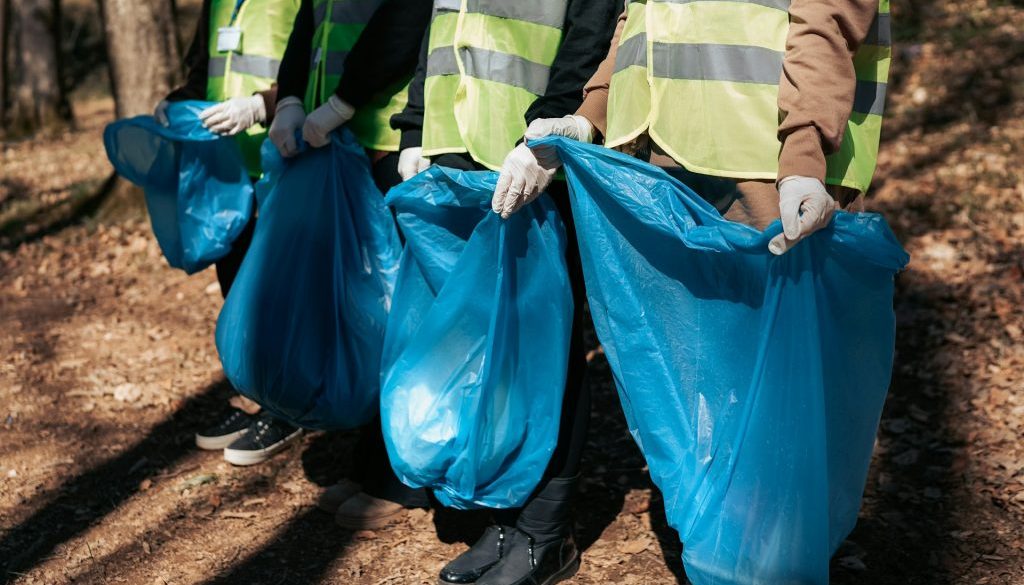In recent years, sustainability has become an increasingly vital consideration for the construction industry, with recycling and waste reduction playing a significant role in building a greener future. As a family-run skip hire and aggregate company serving Staffordshire, Enviro Skip Hire believe in empowering businesses to adopt sustainable waste management practices, and we are dedicated to sharing our knowledge to help our clients make a positive environmental impact.
In this comprehensive guide, we will explore various strategies and solutions for maximising recycling efforts on construction sites, which contribute to environmental protection and help improve your reputation, meet regulatory requirements, and even save you money. We will discuss planning, material reuse, collaboration with responsible partners, the use of eco-friendly materials, and efficient waste management solutions to help you build a greener, more sustainable business.
Planning and executing a successful recycling strategy on your construction site begins with an in-depth understanding of the waste generated throughout the project lifecycle. By conducting a thorough audit of all waste streams, you can develop targeted strategies to reduce, reuse, and recycle, preventing unnecessary waste from entering our landfills. This approach fosters responsible resource management, illustrating your company’s commitment to the environment and aligning with current and future waste management regulations and best practices.
When you partner with trusted waste management experts like us, we provide the support and guidance necessary to create tailored recycling solutions for your projects. Through smart planning and collaboration, businesses can propel forward in employing sustainable construction practices, transforming the industry’s impact on the environment and fostering a more eco-conscious future.
1. Thorough Waste Audit and Planning
Effective recycling starts with a comprehensive waste audit to identify all waste streams generated on your construction site. This allows you to create a strategic waste management plan that addresses material reuse, recycling, and disposal options. Consider the following steps in your planning process:
- Quantify waste generation: Estimate the volume and types of waste produced during construction activities.
- Identify recyclable materials: Determine which waste materials are recyclable or can be repurposed.
- Set targets: Establish recycling targets and milestones, adjusting them continually based on project progress.
- Communication and training: Inform all personnel about the waste management plan, goals, and responsibilities, providing training where necessary.
2. Material Reuse and Efficient Resource Management
Material reuse is a key aspect of recycling in construction and involves repurposing or refashioning waste materials for different applications within the project. Implementing strategies for material reuse can lead to reduced project costs and improved environmental performance. Consider the following strategies:
- On-site reuse: Prioritise reusing waste materials on-site where feasible, reducing the need for off-site disposal and minimising transportation costs.
- Deconstruction: Selectively deconstruct and dismantle structures to preserve valuable materials for future reuse.
- Material exchange: Collaborate with other construction sites and industry partners to exchange reusable or recyclable materials.
3. Partnering with Responsible Waste Management Companies
Selecting a responsible waste management partner is crucial for ensuring proper recycling and eco-friendly practices on your construction sites. Key factors to focus on when choosing a waste management company include:
- Valid accreditations and certifications: Verify that your waste management partner has the necessary licenses and accreditations, ensuring compliance with relevant regulations.
- Recycling capabilities: Partner with companies that demonstrate a commitment to recycling and offer comprehensive solutions for waste management and material recovery.
- Transparent reporting: Choose waste management partners that provide transparent reporting on waste disposal and recycling, helping you measure progress towards your sustainability goals.
4. Use of Eco-Friendly Materials and Technologies
Incorporating eco-friendly materials and technologies into your construction projects helps maximise recycling efforts and reduces your overall environmental footprint. Consider adopting these practices:
- Sustainable building materials: Use environmentally friendly materials, such as recycled aggregates, that have minimal ecological impact and can be easily recycled or repurposed.
- Green technology: Employ innovative technologies like green concrete or insulated concrete forms to reduce waste generation, enhance energy efficiency, and improve the overall sustainability of your projects.
Conclusion
Maximising recycling efforts on construction sites requires effective planning, material reuse, responsible waste management partnerships, and the adoption of eco-friendly materials and technologies. By implementing these strategies, you can reduce your environmental impact, comply with regulations, enhance your reputation, and save costs.
If you’re looking to optimise your construction site’s recycling efforts, feel free to reach out to Enviro Skip Hire’s team of waste management experts. We have extensive experience in providing tailored solutions for waste management and recycling, ensuring that your projects align with sustainability goals and industry best practices. Together, we can make a positive impact on the environment for generations to come.




